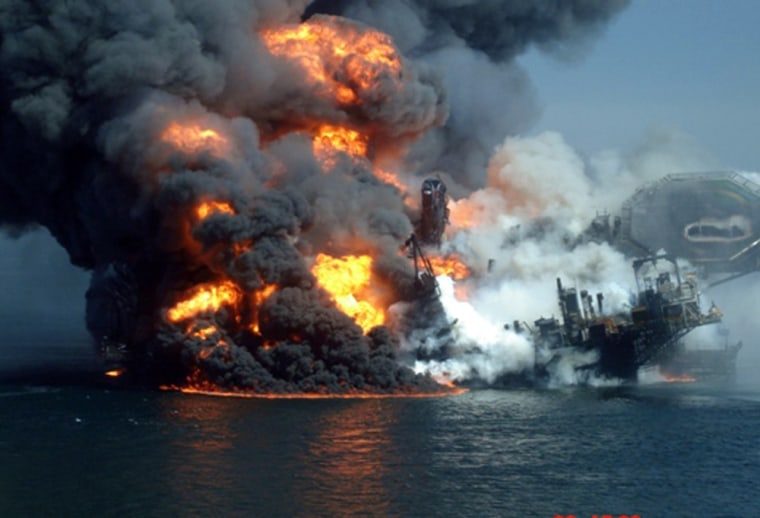The White House oil spill commission on Thursday detailed a proposal for the creation of an independent, self-regulating safety institute based on what the nuclear industry started after the 1979 Three Mile Island accident.
Created in the aftermath of the BP drilling accident in the Gulf of Mexico, the commission said the entire offshore oil industry needed to increase its focus on safety and such an industry group could hold firms accountable.
"The oil and gas industry needs to embrace a new safety culture," commission co-chair Bill Reilly said at the start of a two-day meeting to help prepare the panel's final report.
Reilly, a Republican and former EPA chief under President George H.W. Bush, said a lack of resources had plagued the government's offshore drilling regulator for years, which he said justified the Obama administration's decision on Wednesday to delay expansion of offshore drilling to areas off the Atlantic coast and in the eastern Gulf.
"The industry is upset about it, but one has to ask how a decision could ever have been made otherwise, given the poor state of the agency itself," Reilly said.
Looking at staff recommendations on Thursday and Friday, the commission is tackling possible solutions for the government and the oil industry as well as a path for offshore drilling after the nation's largest offshore oil spill in history.
The panel is considering pushing for the creation of a self-regulating safety organization for offshore drilling akin to the U.S. nuclear sector's Institute of Nuclear Power Operations to help enforce industry standards.
At Thursday's meeting, commission staff said an independent safety group would be able to perform independent auditing and should be empowered to dole out rewards and sanctions.
Any safety institute set up by the industry should not be operated by a lobbying group, such as the American Petroleum Institute, the panel's staff said.
To encourage participation in a safety institute, some commissioners said it may be necessary to require membership before firms can drill in areas deemed risky by regulators.
To be effective, the institute would have to be complemented by a strong federal regulator, the staff said.
"There are fundamental weaknesses in the U.S. regulatory approach" to offshore drilling, commission co-chair Bob Graham, a Democrat and former senator for Florida, said at the meeting.
The panel's staff said the Interior Department's offshore drilling agency had been severely underfunded for years, and too many overlapping duties among federal agencies had caused lapses in oversight.
Ultimately, the panel said the government would need to adopt a system that combined prescriptive rules with a risk-based performance approach.
The panel is also considering recommending a more drastic reorganization of Interior's offshore drilling agency than the department has already proposed.
Under the commission staff's plan, safety regulations would be enforced by a separate entity within the department that would not have to answer to the interior secretary or other political appointees.
That governmental safety agency should be led by an engineer who would not be politically appointed, staff said. "This regulator would have one mandate — which is safety and the technical integrity of these facilities," said Shirley Neff, a senior analyst with the commission.
In addition, commissioners said there may be a need to increase fees to fund additional government oversight and to require companies to prove they can respond to a major spill before acquiring leases for high-risk areas.
At a meeting last month, the panel's investigative team blamed bad decisions by BP and its contractors, Halliburton and Transocean, for the massive Gulf spill.
The panel on Thursday said most of those mistakes had resulted from management failures at all three companies.
The panel found 11 decisions made by these companies increased risk. Most saved time, and all but one had a safer alternative.
"All of these companies were involved — either as the primary decision maker, or in the decision-making process," said Richard Sears, the commission's senior science and engineering adviser. "To think these three companies screwed up like this bothers me."
"This perception in some quarters of the oil and gas industry that Macondo was the consequence of one company's decisions simply does not stand," added Reilly. "It has been conclusively and indisputably established that we have a bigger problem than that."
Companies need policies to make sure financial pressures do not bias decisions in favor of cost savings over safety, the panel said.
This is the panel's final public deliberation before the scheduled release of its official policy recommendations in January.
